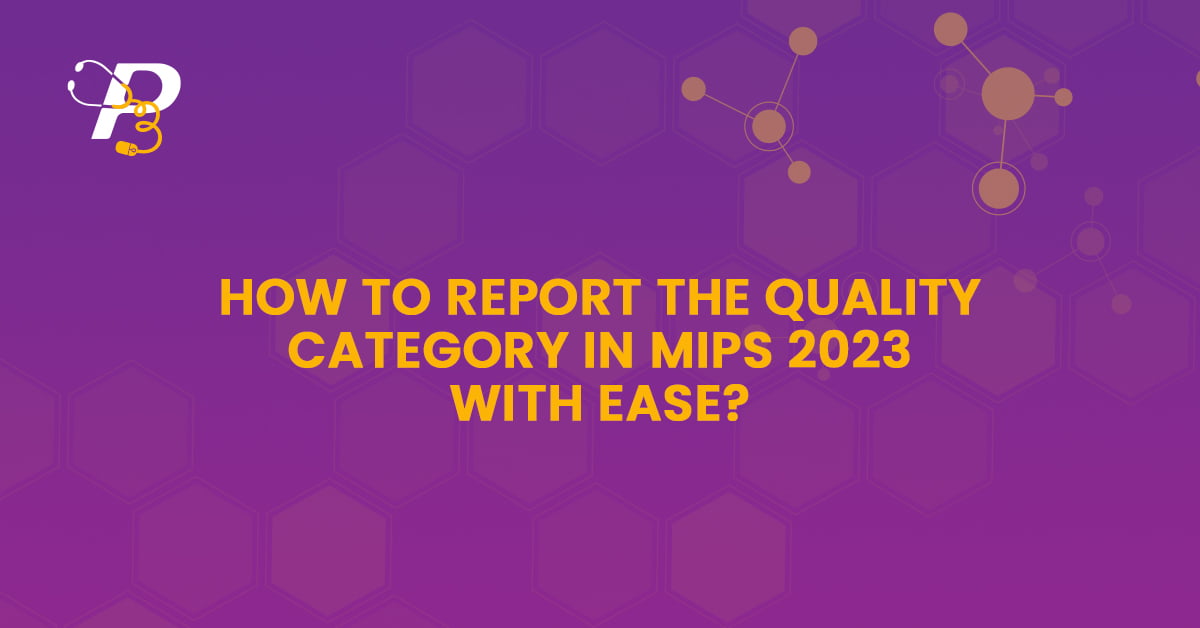MIPS 2024: What are the New Policies for Third Party Intermediaries? (Part IV)
[Note: P3 Care, as a MIPS qualified registry, presents your series of blogs on MIPS final rule updates for CY 2023. So, this is ‘Part IV’ of our CY 2024 MIPS policy changes.]
The MIPS 2024 final rule provides comprehensive guidelines, covering every aspect of reporting. In our blog series, we have discussed the policy changes for MIPS performance categories and final scoring. If you haven’t come across this information before, go check out our blog parts I, II, and III. In today’s blog, we will define the policy updates for third-party intermediaries.
Let’s get started with a little introduction to the role of third-party intermediaries in MIPS reporting!
Third-Party Intermediaries: The Middlemen in MIPS Reporting
Generally, third-party intermediaries are external entities specialized in certain services. In MIPS, they engage with participants to streamline and facilitate the reporting process. Throughout the PY, they play a supportive role, helping providers meet their reporting requirements.
Here are a few roles third-party intermediaries can play in MIPS 2024 reporting:
- Data aggregation and submission
- Technology integration
- Performance analysis
- Regulatory compliance
- Education and training
P3 Care is also a MIPS qualified registry—a third-party vendor providing MIPS consulting services to providers. With our experience and expertise, we help you score positive performance outcomes.
Now, let’s see what the MIPS 2024 policy entails for third-party vendors!
MIPS 2024 Policy Updates for Third-Party Vendors
The new policy updates address third-party vendors in different ways. Anyhow, most particularly, the policy updates applied to the following intermediaries:
- Health Information Technology (IT) Vendors
- QCDRs and Qualified Registries
Elimination of the Health IT Vendor Category
Health IT vendors are third-party vendors that present MIPS data to CMS on the clinician’s behalf. These are the authorized MIPS entities for supporting data submission for all MIPS performance categories. Not only traditional MIPS, but these vendors also facilitate clinicians participating via APP.
FY 2023 was the first year for MVP reporting. Whereas, CMS allowed IT vendors to submit data for MVP participants too. But in the MIPS 2024 final rule, CMS has declared to omit health IT vendors from MIPS as third-party intermediaries with the beginning of 2025. In other words, FY 2024 is the last year when health IT vendors can submit MIPS data on clinicians’ behalf. Mainly, CMS is improving the data integrity protocols for third-party vendor requirements.
If health IT vendors want to keep reporting on clinicians’ behalf, they have to register as QCDR. The nominations for registering as QCDR will be done in CY 2024. Thus, these vendors can help with data collection, signing in, and uploading.
New Policies for QCDRs and Qualified Registries
The new MIPS 2024 policies explain the following aspects of QCDRs and QRs:
- Self-Nomination and Approval
- Remedial Action and Termination
- MVPs Support
Rules for Self-Nomination and Approval
CMS has specified simplified self-nomination requirements for existing QCDRs and qualified registries in good standing.
- According to the new self-nomination standards, QCDRs and qualified registries must provide MVP titles. Also, they must ensure the inclusion of precise measures and activity identifiers for the IA and PI categories.
- CMS has strengthened its nomination rejection criteria. Therefore, it has added “measures submitted after self-nomination” as a QCDR measure rejection reason.
- Additionally, QCDRs have to publicly post their approved measure specifications throughout the performance and submission periods.
- Likewise, CMS has asked QCDRs and qualified registries to attest to the following:
- Attestation for permitting CMS to review data upon request
- Confirm the accuracy of their information in qualified postings.
- CMS has also distinguished the sampling methods for data validation audits for third-party vendors in the MIPS 2024 rule.
Policies for Remedial Action and Termination
The MIPS 2024 policies regarding remedial action and termination depict the following:
- Publicly qualified postings will be the source of information for updates regarding remedial action and termination.
- Failing to provide and maintain updated information can cause remedial action or even termination.
- Intermediaries will inform CMS about the CAP’s completion.
- Remedial action for two consecutive years can initiate the termination of that intermediary.
Support of MVPs
Intermediaries must support all measures and IAs in the MVP, with only two exceptions for specialty limitations.
- Clarifying expectations: within a multi-specialty MVP, QCDRs and qualified registries are tasked with supporting only relevant measures.
- Reporting QCDR measures is exclusive to the measure owner. In cases where the QCDR doesn’t own the measures, support is contingent on appropriate permissions.
Conclusion
So, that’s all about the policies for third-party intermediaries in MIPS 2024. Keeping the new policies in mind, one must be very selective when depending on them. They must keep in mind their specific needs, i.e., expertise, technology, resources, etc. Only then can third-party intermediaries effectively support your MVP reporting.
P3 Care is a CMS-trusted, qualified registry providing MIPS consulting services to support your MIPS reporting journey. Contact us to elevate your success in MIPS 2024 and the years ahead. We ensure a transparent collaboration with healthcare providers and practices. That’s how we keep an eye on your needs and help you make the right strategies.














Leave a Reply
Want to join the discussion?Feel free to contribute!